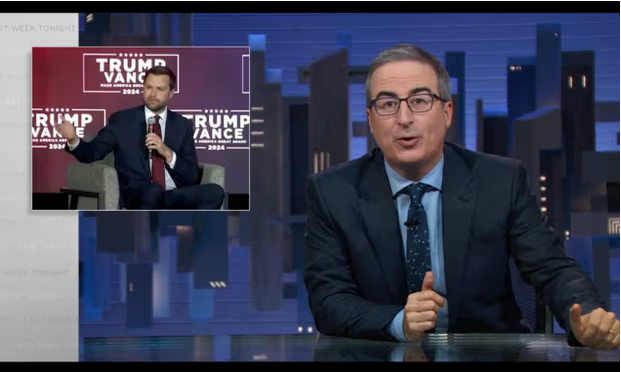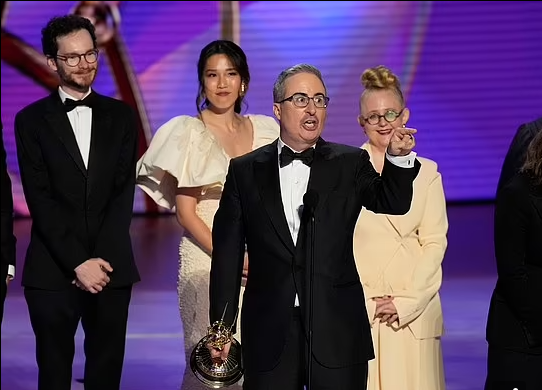On the latest episode of *Last Week Tonight*, John Oliver criticized those commending the “civility” of last week’s vice-presidential debate between JD Vance and Tim Walz. Oliver argued that politeness is irrelevant when fundamental issues like immigrant rights and women’s autonomy are at stake. He likened the focus on civility to praising the handwriting on a ransom note, quipping, “It’s like saying, ‘Look at the beautiful cursive on ‘You have 24 hours before he dies.'”
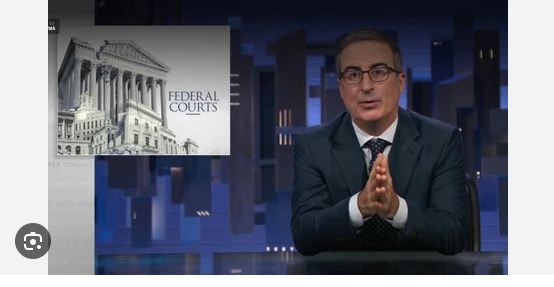
Oliver also took aim at Vance’s evasive response when asked if Donald Trump lost the 2020 election. While Walz called it “a damning non-answer,” Vance simply said, “I’m focused on the future. ”It’s no wonder Walz broke the fourth wall like a character in *Abbott Elementary.* If you’re not dodging, you just answer the question.”
He further addressed special counsel Jack Smith’s report, which detailed Trump’s efforts to overturn the 2020 election, including Trump allegedly admitting he lost but vowing to “fight like hell” to stay in power. Oliver emphasized that losing is the most important fact here, joking that Trump’s actions were “the most unsettling thing you could overhear if you work at the White House.”
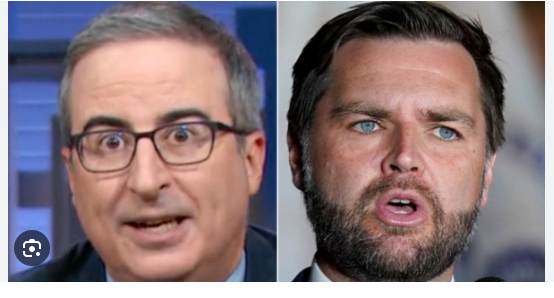
Oliver highlighted a moment in the report where Trump muted his lawyer Sidney Powell, calling her claims of voter fraud “crazy.” Laughing, Oliver added, “If I lied so badly that even Trump muted me, I’d walk straight into the ocean.”
Shifting tone, Oliver warned that Trump could challenge the upcoming election results if he loses, and Vance has shown no resistance to supporting that.
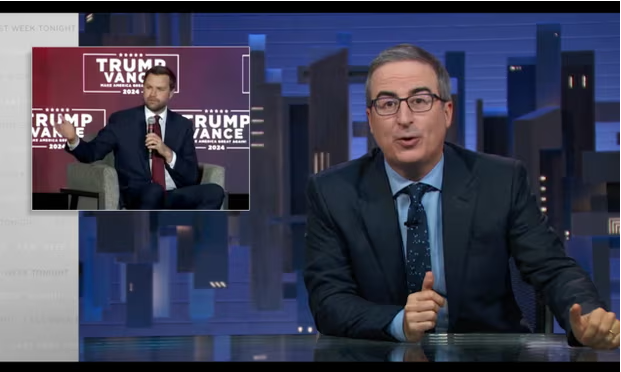
In his main segment, Oliver delved into how routine traffic stops, particularly for non-safety violations, disproportionately target people of color and can become dangerous. He cited that, since 2017, police have killed at least 813 people during such stops, most of them Black. Referencing the shootings of Philando Castile and Daunte Wright, he noted that for Black motorists, driving often comes with the added fear of harassment or potential violence. This issue, Oliver argued, is not just about individual bad actors but the result of systemic decisions that make traffic stops disproportionately dangerous for marginalized communities.
